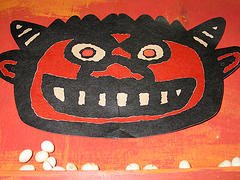 Yesterday was a bad day. I knew it was coming, but I pushed on through anyway. I didn’t even listen to my own rules.
Yesterday was a bad day. I knew it was coming, but I pushed on through anyway. I didn’t even listen to my own rules.
If I had a job where I had to go into an office and physically show up to get paid, I would have called in a mental health day. Actually, I know myself better than that – I would have gone in, but I would have accomplished nothing.
I took some time off to re-set yesterday because I was mentally exhausted and overwhelmed by life. All of it. At once. The old me would have still gone into work and pushed through. The new me recognized exactly what was happening, but better yet knew exactly what I needed. Time off.
Never mind I had strict deadlines for five different projects. I could have finished them, but the energy I was able to put toward them was so little that it would take me longer than normal and it would suck. So I shut the computer and stopped working.
You Have the Power To Heal Yourself
My personal balance plan involved yoga nidra, journaling and time to just sit around and mope. Maybe it’s not the most productive, but it’s not always about performing. This was about recovering from over-performance. So I sat with what I had and what I had was deep sadness, extreme mental fatigue and a major lack of motivation to do anything. That’s what the day dealt me.
By mid-afternoon I took my scheduled calls and felt a little better – never underestimate the power of human connection even when you want to curl up on a ball and go to sleep. It was the time I got to spend with my boyfriend at the end of the day that really helped lift me out of the fog. If I didn’t take time for myself, the consequences would have compounded and I would have had a bad week rather than a bad day.
Despite the fact that I didn’t cross of the to-do’s on my list, I was proud of myself for recognizing it was time to take a break. That’a s MAJOR accomplishment in the life of a recovering Type-A overachiever.
How to Recognize The Symptoms of A Mental Health Day
In our quest for a balanced life, there will always be excuses, familiar ground that is way to easy to fall back on and that almighty brain of ours that will convince us to plow forward or add rationality to an emotional situation.
In yoga, we call these demons that hold us back the Kleshas. I’ve talked about them before on the blog, but they’re worth revisiting. It’s always a good reminder to be on the lookout for these demons so when they do start to haunt you, you have the awareness to dig into your toolbox o’ balance.
1. Avidya – Ignorance of Delusion
Avidya is all about refusing to things for what they really are. I refused to see that my body and mind was asking me to take a break until the symptoms started getting worse and impossible to ignore. The ultimate goal is to recognize everything for exactly what it is without judgement and correct course, if necessary, as soon as possible.
2. Asmita – Over-identification with the ego
As we grow up and gain experience, we change. Sometimes our ego like to remind us about the stories we tell ourselves; when changes in our lives directly question the stories we believe to be true about our selves and our lives, we reach a tension point. Much of the time, the story and what we have always taken to be true wins out over change. This is why well into your 20s you may refuse to believe you like spinach, despite the fact you haven’t actually tried it for 15 some odd years. You’ve convinced yourself you’re not a spinach eater and have gotten wrapped up in the story. To really find growth and balance, we must let go of the death grip on the stories. Sorry to break it to you, but they DO NOT define you.
3. Raga – Addiction to pleasure
This one is easy to explain. We tend to make decisions in our lives that will bring us more pleasure. This means that when an opportunity comes up that invites you out of your comfort zone, you decide it’s perfectly nice exactly where you are. Another growth stunter and a missed opportunity to examine what it is about your comfort zone that is keeping you there in the first place.
4. Dvesha – Aversion to pain
Obviously we never want to purposely inflict pain on ourselves, but many times the fear of potential pain is enough to keep us far away. If you don’t try, you’ll never know, and you’ll definitely never grow.
5. Abhinivesha – Fear of death
Similar to Dvesha, our fear of dying causes us to make choices in our lives in the hopes of living longer. Any risk that might involve death we turn our backs to. This includes our fear of being around people who are or are close to death. If you’re uncomfortable about getting old because you’re afraid to die, then you’re missing the life you’re living in this very moment.
In my mental meltdown yesterday, I was working directly with Dvesha with my aversion to feeling sad, unproductive and depleted. It took a lot to recognize I needed to sit with this to understand what it was I needed most. I also suffered from Avidya – ignorance of the situation I put myself in and deluding myself that I could power through the next month with no setbacks. And finally, there’s a lot of Asmita going on as my big move approaches. I must let go of who I think I am and allow the story to continue.
Form Your Own Balance Plan to Get Rid of Your Klesha Demons
The Kleshas give us plenty to think about in our own lives. Notice how they come up for you in your daily life – especially if you’re feeling uncertain, uneasy or un-good.
In today’s first non-asana or meditation practice Wellness Wednesday video, I talk to you about the activities you can use, plus I have a pretty special announcement, so I hope you’ll take a listen.
Image credit: ark





